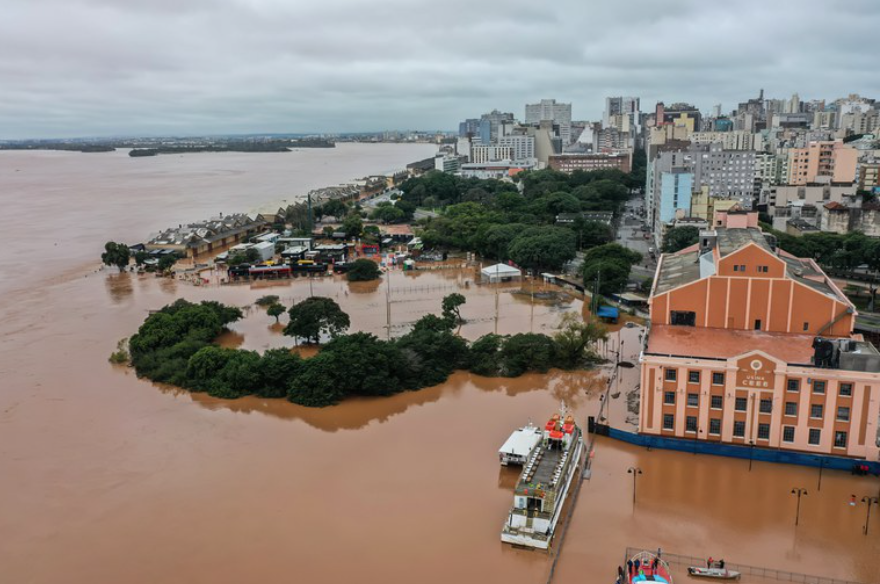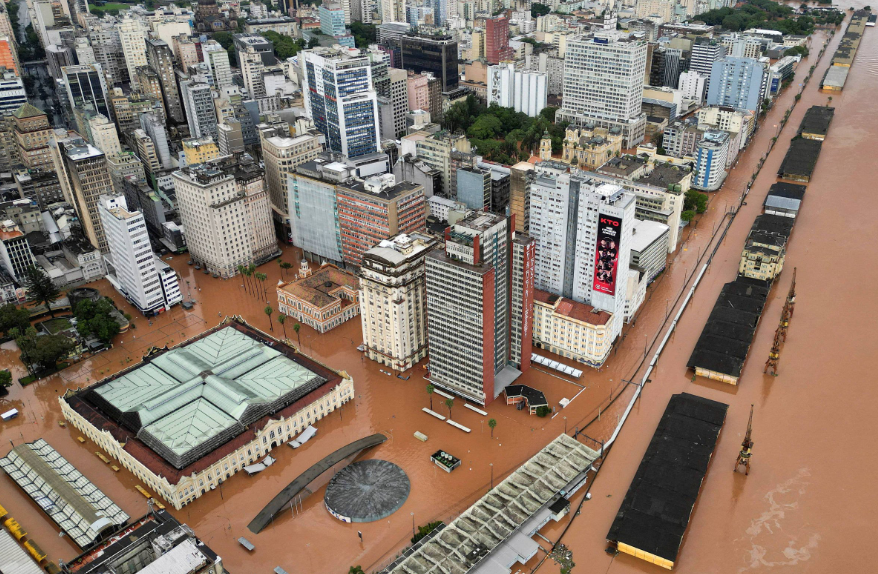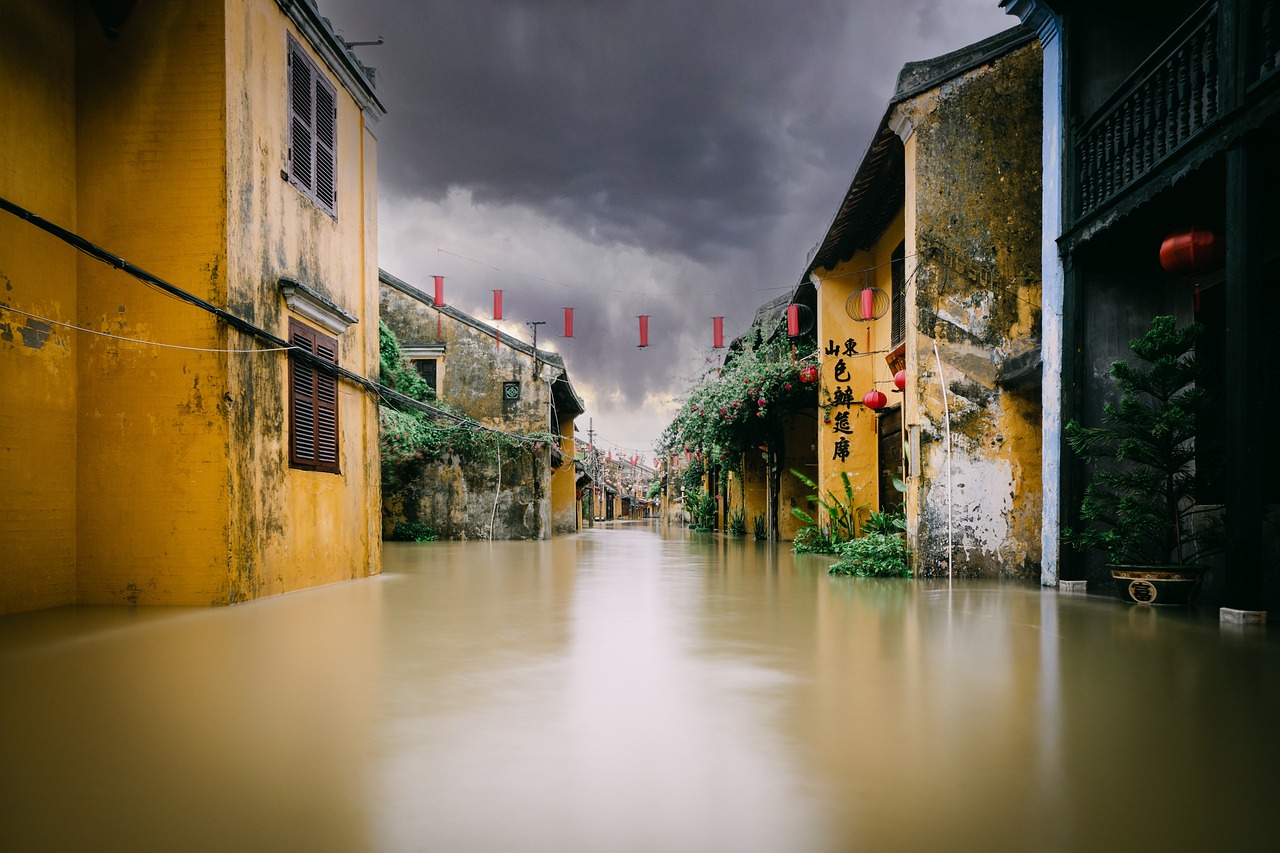Southern Brazil, particularly the state of Rio Grande do Sul, is reeling from catastrophic flooding caused by relentless heavy rains. The floods have claimed over 100 lives, displaced thousands, and caused widespread destruction. Here’s a comprehensive look at the situation:
The floods have submerged hundreds of towns in Rio Grande do Sul, leaving residents stranded and communities isolated. At least 100 people have lost their lives, with over 130 still missing. Additionally, approximately 163,000 people have been forced to flee their homes due to rising waters.
The situation is dire in Porto Alegre, the state capital, where the Guaíba river surged to a record high level of 5.33 meters (17.5 feet). This surpasses even the historic floods of 1941. The airport in Porto Alegre remains closed indefinitely, compounding the challenges of delivering aid to affected areas.
The floods have not only devastated residential areas but also wreaked havoc on critical infrastructure. Porto Alegre’s Salgado Filho International Airport is submerged, and major highways connecting the capital to other parts of the state are impassable. Power outages, water shortages, and communication disruptions have further exacerbated the crisis.
Rescue operations are underway to evacuate vulnerable populations, but the sheer scale of the disaster has overwhelmed local authorities. Thousands of people are living in shelters, grappling with the loss of their homes and livelihoods. Efforts to distribute food, water, and medical supplies are hindered by the extensive flooding.

The unprecedented flooding is attributed to a rare combination of factors, including intense rainfall, atmospheric blockage, and the El Niño phenomenon. Climate change likely exacerbated the severity of the floods, with experts warning of more extreme weather events in the future.
Brazilian President Luiz Inácio Lula da Silva has visited the affected region to oversee rescue efforts and assess the damage. The government has pledged financial assistance for rebuilding infrastructure and supporting affected families and businesses. However, challenges persist, including ongoing rainfall and the need for long-term solutions to mitigate future disasters.
The environmental repercussions of the floods are significant, with infrastructure damage, contamination of water sources, and disruption of ecosystems. The flooding has also taken a toll on the economy, with businesses shuttered, agricultural lands submerged, and transportation networks paralyzed. The closure of the airport and major highways has hampered trade and commerce, exacerbating the region’s economic woes.
Amidst the devastation, stories of resilience and solidarity emerge as communities come together to support one another. Volunteers and rescue workers tirelessly assist in evacuation efforts, risking their own safety to save lives. Temporary shelters provide refuge for those displaced, offering food, shelter, and medical care. Despite the challenges, a spirit of unity prevails as people rally together to rebuild their lives and communities.
As Brazil grapples with the aftermath of this disaster, there is a pressing need for long-term preparedness and climate action. Investments in flood prevention infrastructure, early warning systems, and sustainable urban planning are essential to mitigate the impact of future extreme weather events. Moreover, addressing the root causes of climate change through emissions reduction and adaptation measures is paramount to safeguarding vulnerable communities and ecosystems. Through collective action and concerted efforts, Brazil can build resilience and create a more sustainable future for all.

In the face of this humanitarian crisis, international support and collaboration play a crucial role in augmenting relief efforts and assisting affected communities. The global community, including neighboring countries and international organizations, has extended a helping hand by providing financial aid, technical expertise, and humanitarian assistance. This solidarity underscores the interconnectedness of nations in addressing the impacts of climate change and natural disasters, emphasizing the importance of collective action on a global scale. By working together, countries can enhance resilience, build adaptive capacity, and forge a path towards a more sustainable and resilient future for all.

Your blog is a breath of fresh air in the often stagnant world of online content. Your thoughtful analysis and insightful commentary never fail to leave a lasting impression. Thank you for sharing your wisdom with us.